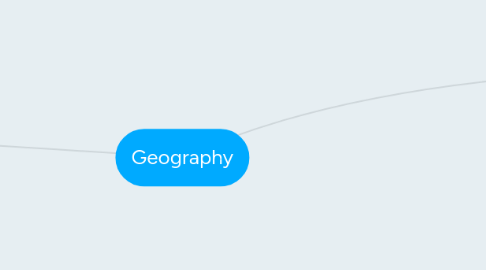
1. H. 4
1.1. Par. 1 The earth: liquid or solid?
1.1.1. The earth has 4 layers.
1.1.1.1. 1. Inner core
1.1.1.1.1. Solid
1.1.1.2. 2. Outher core
1.1.1.2.1. liquid
1.1.1.3. 3. Mantle
1.1.1.3.1. Liquid and solid
1.1.1.4. 4. Crust
1.1.1.4.1. Solid
1.1.2. Plate tectonics
1.1.2.1. Tectonic plates
1.1.2.1.1. Two different plates
1.1.2.1.2. Movements of plates
1.2. Par. 2 Volcanoes
1.2.1. Subduction
1.2.1.1. 1. The oceanic plate meet the continental plate.
1.2.1.2. 2. The oceanic plate goes beneath the continental plate.
1.2.1.3. 3. The oceanic crust melts.
1.2.1.4. 4. Magma comes up.
1.2.1.5. 5. A volcano is formed.
1.2.2. Hot spots
1.2.2.1. 1. The magma is heating up.
1.2.2.2. 2. You will get a magma plume.
1.2.2.3. 3. A vulcano formed.
1.2.2.4. 4. This goes desame for a very long time.
1.3. Par. 6 Endogenous and exogenous forces.
1.3.1. Endogenous processes
1.3.1.1. In the earth
1.3.1.2. Make the mountains higher.
1.3.2. Exogenous processes
1.3.2.1. On the outside of the earth.
1.3.2.2. 3 types
1.3.2.2.1. Weathering
1.3.2.2.2. Erosion
1.3.2.2.3. Sedimentation
1.4. Par. 3 A shaking world
1.4.1. Earthqaukes
1.4.1.1. Epicentre
1.4.1.1.1. The epicentre is on the earths surface.
1.4.1.2. Hipocentre
1.4.1.2.1. The hipocentre is in the earth by the earthqauke.
1.4.1.3. The power of an earthquake.
1.4.1.3.1. Richter Scale
1.4.1.3.2. Mercalli Scale
1.5. Par. 4 Devastating waves
1.5.1. Tsunami
1.5.1.1. A tsunami occur when a earthquake lifts the seabed upwards.
1.5.1.2. Tsunami Japan 2011
1.5.1.2.1. A lot of destroyed buildings.
1.5.1.3. A lot of dead people.
1.5.1.4. A very high wave.
2. H. 2
2.1. Par. 1 Contrasts in development
2.1.1. LEDC and MEDC
2.1.1.1. MEDC are country's that are more developt. LEDC are country's that are less developt. Most MEDC are in the North and most LEDC are in the South.
2.1.2. GDP (per capita)
2.1.2.1. GDP is the income that a country gets in a year.
2.1.2.2. GDP per capita is the GDP and than divided by the people in that country.
2.1.2.3. Disadvantages by GDP
2.1.2.3.1. -You only have the money
2.1.2.3.2. -The income is often unequal divided in a country.
2.1.2.3.3. -It doesn't tell you anything about that country.
2.1.3. Purchasing power
2.1.3.1. This is how many for example banana's a peson can buy
2.2. Par. 2 Measuring development
2.2.1. Basic necessities
2.2.1.1. These are things that you need to survive.
2.2.1.1.1. -Food
2.2.1.1.2. -Shelter
2.2.1.1.3. -Education
2.2.1.1.4. -Health care
2.2.2. Literacy rate
2.2.2.1. People that are illiterate can't read or write.
2.2.2.2. The literacy rate is the percatage in a country that can read and write.
2.2.3. HDI
2.2.3.1. The HDI is a index for a very good view about the country. It looks at: life expectancy, education and income.
2.3. Par. 3 Work and migration
2.3.1. Work types
2.3.1.1. -primary sector
2.3.1.1.1. These are people that word with nature.
2.3.1.1.2. In LEDCs most people work in this sector.
2.3.1.2. -secondary sector
2.3.1.2.1. This is when you work in a factory.
2.3.1.3. -tertiary sector
2.3.1.3.1. This is when you work in service.
2.3.1.3.2. Most people in MEDCs work in this sector.
2.3.1.3.3. Different types.
2.4. Par. 4 Reasons for underdevelopment
2.4.1. Human factors
2.4.1.1. colonies
2.4.1.1.1. The North have taken all the natural recources out of these countries.
2.4.1.1.2. Also many colonies gained independence.
2.4.1.2. indepted
2.4.1.2.1. Many LEDCs are indepted to MEDCs.
2.4.1.3. Governance
2.4.1.3.1. Good governance
2.4.1.3.2. poor governance
2.4.2. Physical factors
2.4.2.1. Droughts
2.4.2.2. famine
2.4.2.3. natural hazard
2.4.3. Poverty trap
2.4.3.1. When you can't go to school and earn much money, so that your children also can't get to school to make money for their children etc.
2.5. Par. 5 Development aid
2.5.1. Types of aid
2.5.1.1. Emergency aid
2.5.1.1.1. It is neccesary when there is an emergency such as an earthquake. (short term aid)
2.5.1.2. Structaral aid
2.5.1.2.1. For a longer time for example build schools, roads, hospitals etc. (long term aid)
2.5.1.3. bilateral aid
2.5.1.3.1. When a country donates something to another country. The country that gives is the donor country.
2.5.1.4. Charitable aid
2.5.1.4.1. When a charity gives aid.
2.6. Par. 6 Poverty in MEDCs
2.6.1. Poverty in the Netherlands
2.6.1.1. In the Netherlands people can go to a food bank when they can't buy food it selves.
2.6.1.2. The most poverty is in Amsterdam.
2.6.2. MEDCs growing income gap.
2.6.2.1. The richer people earn much more then the poorer people and this gap is still increasing.
2.6.3. Absolute porverty/Relative poverty
2.6.3.1. Absolute poverty is when you earn less then $1,25 a day.
2.6.3.2. Relative poverty is when you are poor compared to other people in your country.
